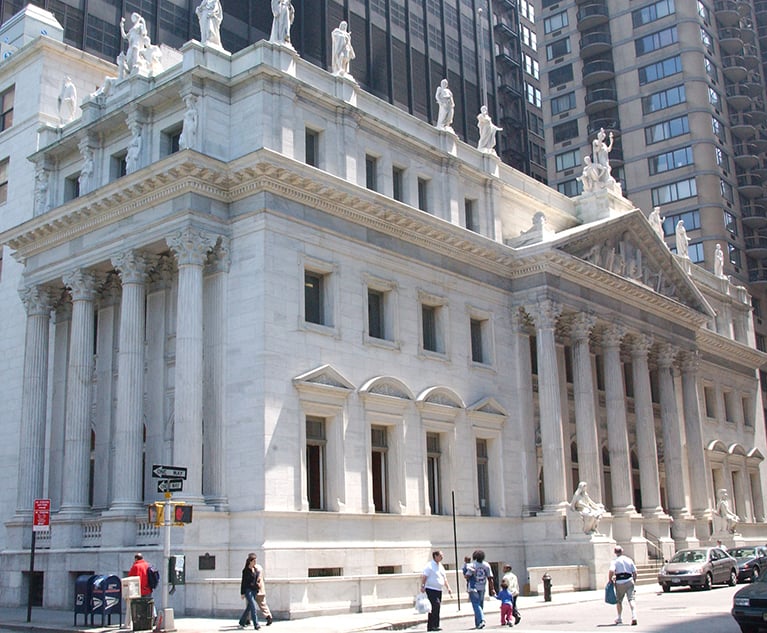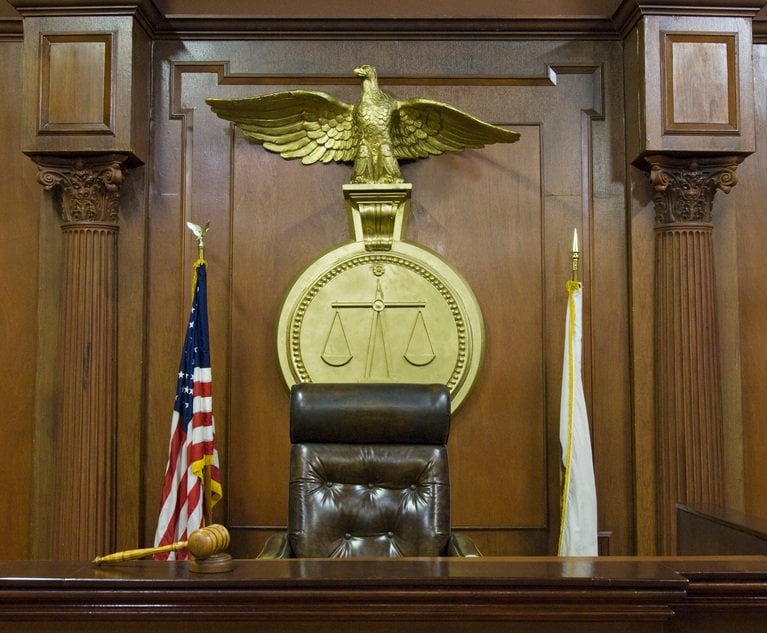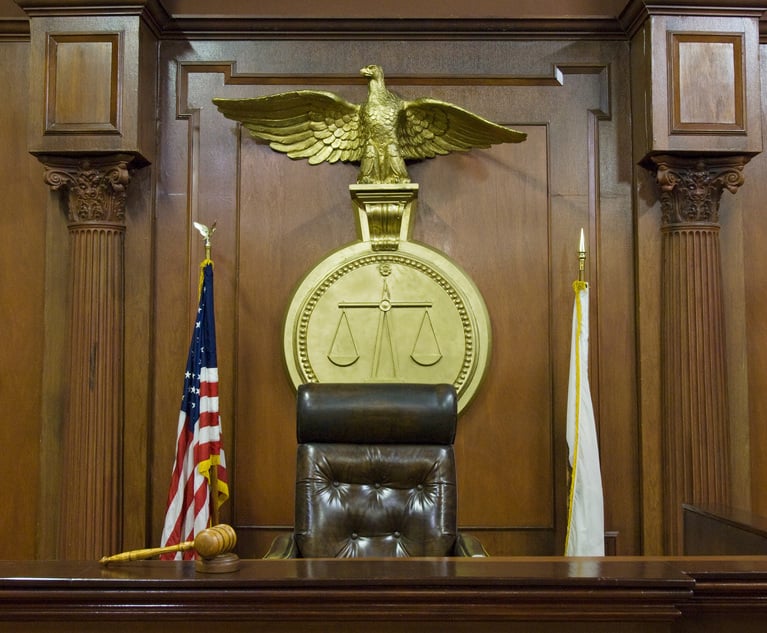
January 13, 2025 | New York Law Journal
First Department Attorneys Facing Possible Suspension for Failing to RegisterApproximately 1,430 attorneys are at risk for suspension for failing to register and pay the $375 licensing fee. Attorneys have until Feb. 16 to submit proof of compliance.
By Patricia Kane
1 minute read

January 10, 2025 | New York Law Journal
Attorneys ‘On the ‘Move: Morrison Cohen Expands White Collar Practice; O’Melveny Brings Back Corporate Finance PartnerAnd other announcements of recent hirings and promotions of New York attorneys.
By Patricia Kane
6 minute read

December 20, 2024 | New York Law Journal
Attorneys 'On the Move': Structured Finance Attorney Joins Hunton Andrews Kurth; Foley Adds IP PartnerAnd other announcements of recent hirings and promotions of New York attorneys.
By Patricia Kane
5 minute read

December 10, 2024 | New York Law Journal
Mayor's Advisory Committee To Hold Hearing on Fitness of Judicial CandidatesThe public hearing, scheduled for December 17, is for receiving information regarding Mayor Eric Adams 's nominees for Criminal and Interim Civil Court judges.
By Patricia Kane
2 minute read

December 03, 2024 | New York Law Journal
Mayor's Advisory Committee To Hold Hearing on Fitness of Judicial CandidatesThe public hearing, scheduled for December 11, is for receiving information regarding nominees for Family Court judges.
By Patricia Kane
1 minute read

November 25, 2024 | New York Law Journal
Attorneys ‘On the Move’: Morrison Cohen Adds White Collar Partner; Corporate/Securities Partner Joins OlshanAnd other announcements of recent hirings and promotions of New York attorneys.
By Patricia Kane
6 minute read

November 08, 2024 | New York Law Journal
Financial Disclosures in Prenups: The Legal, Personal, and Strategic ConsiderationsThough financial disclosure is not required by law in New York, it does make a prenup less likely to be legally challenged. However, the benefits are not just legal. In her article, Alyssa Rower looks at the different "levels" of financial disclosure through various lenses: legal enforceability, psychological and emotional well-being, and negotiation considerations.
By Alyssa Rower
8 minute read

November 06, 2024 | New York Law Journal
Establishing the Prevailing Party; Failure To Comply With LLC Law; Takings Claim: This Week in Scott Mollen's Realty Law DigestScott Mollen discusses "Inwood Gardens, Inc. v. Udoh," "Hull Unique Equities LLC v. Boone," and "Martinez v. Town of Clarkstown."
By Scott Mollen
15 minute read

November 06, 2024 | New York Law Journal
How New York Is Ethically Leveraging AI in the CourtroomAndrew Wylie, Clinton County District Attorney, and Chief Desmond Racicot (Ret), senior director of business development at Cellebrite discuss the growth of the use of AI in digital investigations and how New York practitioners can leverage the tech to deliver justice in a swift yet ethical manner.
By Andrew Wylie and Desmond Racicot
8 minute read

November 05, 2024 | New York Law Journal
Hospitality Performance Tests: Fool's Gold?Pryor Cashman attorneys Todd Soloway, Bryan Mohler and Itai Raz discuss how performance tests for hotel management function in the real world and look at recent case law interpreting these tests and the manners in which performance tests can and cannot provide additional protection to hotel owners.
By Todd E. Soloway, Bryan T. Mohler and Itai Y. Raz
8 minute read
Trending Stories
- 1How ‘Bilateral Tapping’ Can Help with Stress and Anxiety
- 2How Law Firms Can Make Business Services a Performance Champion
- 3'Digital Mindset': Hogan Lovells' New Global Managing Partner for Digitalization
- 4Silk Road Founder Ross Ulbricht Has New York Sentence Pardoned by Trump
- 5Settlement Allows Spouses of U.S. Citizens to Reopen Removal Proceedings



